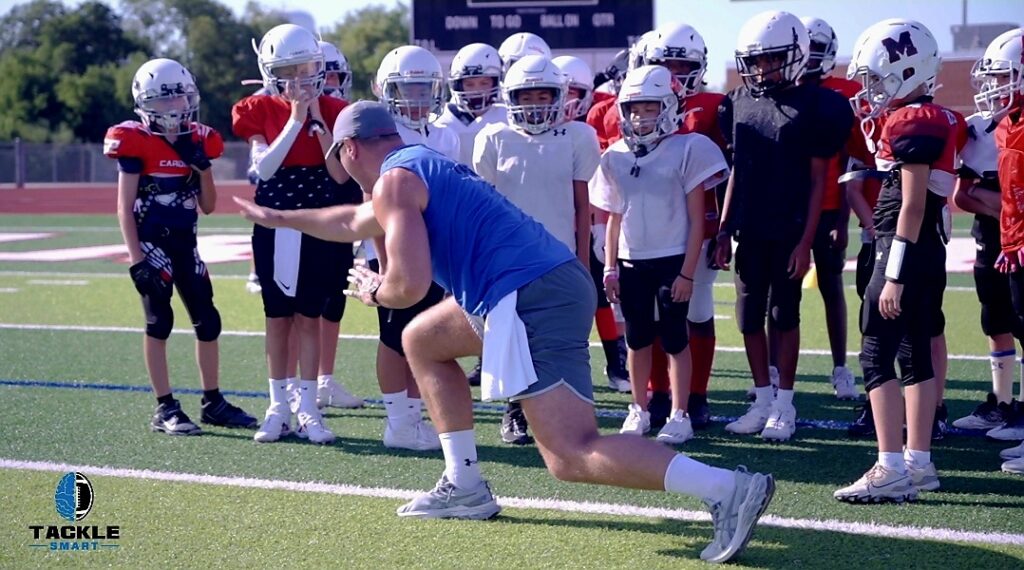Team sports is a time for children to bond with other kids, stay physically active, and learn teamwork skills. However, this life lesson can be disrupted very quickly if pushy parents enter the equation. The problem is that a pushy parent may not know that they are being this way. That’s why it’s important to know the signs of a pushy parent, and how to deal with pushy parents. If you see yourself on this list, it may be time to rethink the way you act and make some changes for the benefit of you and your child.
Pushy parents meaning
There is not one singular definition of a pushy parent. Being a pushy parent can come in many forms. However, here are some common behaviors of a pushy parent.
- Shouting or screaming in an angry or aggressive way and/or heckling other children
- Offering too much-unwarranted advice or information
- Always correcting the child’s speech, actions, etc. or correcting others
- Signing a child up for too many sports, camps, etc.
- Comparing their child to other children
- Signing their child up for activities without the child’s consent
Sometimes a pushy parent can be obvious to spot if they are always yelling at the umpire or referee, starting arguments with other parents, or screaming at their child in public during sporting events. But there can be situations in which pushy parents are passive-aggressive in their actions such as when the parent overwhelms the child’s schedule when the child is no longer interested in sports or other activities.
The actions of a pushy parent in sports
It may as easy as looking into a child’s eyes to tell if their parent is a pushy parent. If a child seems bored during sports games or has an empty look into their eyes as they head off to another competition, then their parent may be a pushy parent.
According to child experts, a parent should never make a child join a team if they do not want to. Just because they aren’t interested in team sports, that doesn’t mean they can’t find other productive ways to be active and social. If your child doesn’t seem interested in sports, but you want them to follow in your footsteps, or be the athlete you never were, consider these reasons why your child may not be interested in sports.
- They haven’t yet developed the physical skills, attention span, or understanding of the rules of certain sports to enjoy it. Their inability to kick or throw a ball may be frustrating and in turn, make team sports no fun. In this situation, maybe try playing sports for fun at home to help develop these skills. By playing different sports at home, a child can make the decision on what sport they enjoy playing if any, and then they can choose in what way they most enjoy being active.
- The coach or league is too competitive. A child may be intimidated by keeping score, the pressure of winning, or by an over-assertive coach. In this case, it may be best to find a league and coach that is more interested in building team skills than winning a championship or choosing a recreational league that does not keep score until the child feels more comfortable with more competitive environments.
- A child may have stage fright. Being on a team may be scary for some kids. The pressure of being compared to their teammates or worrying about whether they will be chosen to play can be stressful for a child. In this case, individual sports like running, gymnastics, swimming, or martial arts may be more appropriate. Let your child tell you what they feel most comfortable doing so they can truly enjoy their fitness experience. If they enjoy their experience, then they will be most likely to keep trying different ways to stay active and healthy.
How to be less of a pushy parent
If you feel like you may fit the criteria of a pushy parent, then you will need to learn some sports parent etiquette. Here are some basic behaviors that are acceptable during competition and with your child during the sports season.
- Cheer loudly for your child as well as their team members on gameday. This will show your child that teamwork is important and that you should always support others on your team.
- Celebrate great plays regardless of what team the child is on. This will show your child to show compassion towards others and not to be over-competitive.
- Be a good role model in your behaviors. In other words, treat others as you would want to be treated and act as you would want your child to act towards others.
- Make sure your child knows how proud you are of them win or lose. The way you treat your child in these situations can greatly impact self-esteem.
- Be truly present for your child during activities. If you’re on your cell phone the whole time or reading a book, then this disinterest can make your child feel unimportant to you and can impact self-esteem.
Take home message
Although it may not seem like a big deal, being a pushy parent can greatly impact a child more than just embarrassing them in front of their teammates. A pushy parent can make a child feel inferior, impact self-confidence and self-esteem, and could lead to sleeping and eating behaviors that could impact a child’s physical and/or mental health. So, if you feel like you’re a pushy parent, then it’s time to make changes so you can channel your emotions into your child’s life in a healthier way for you and your child.




